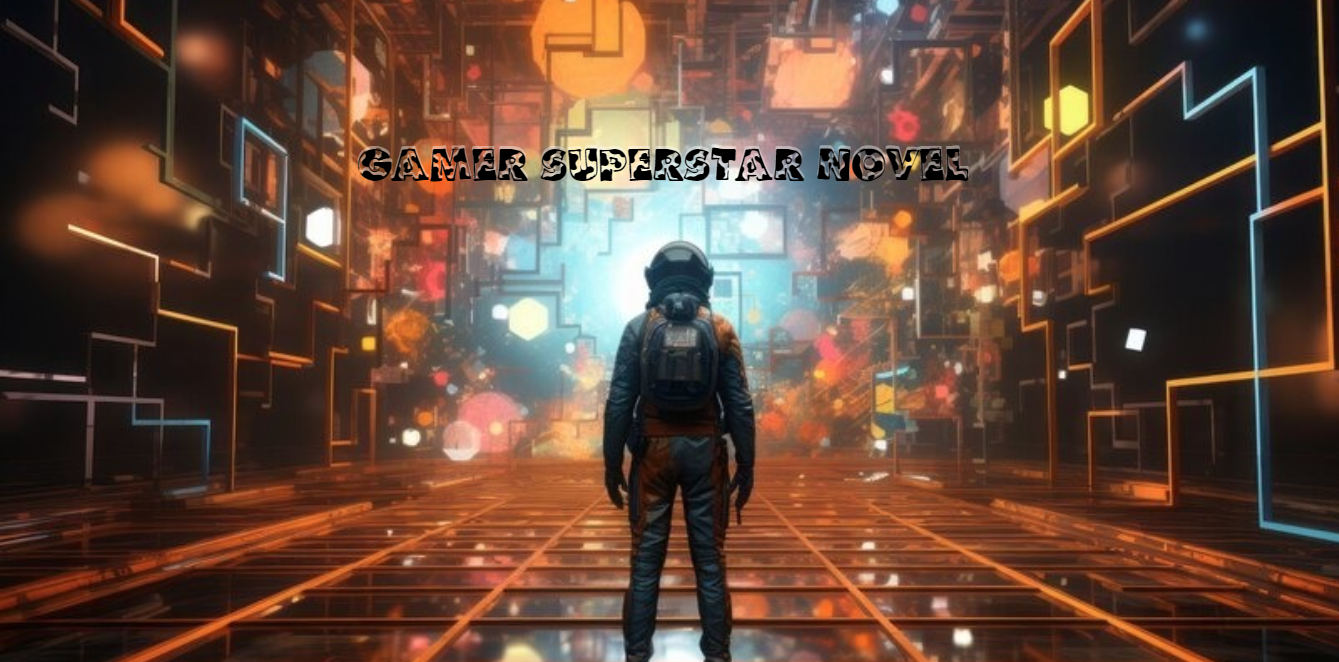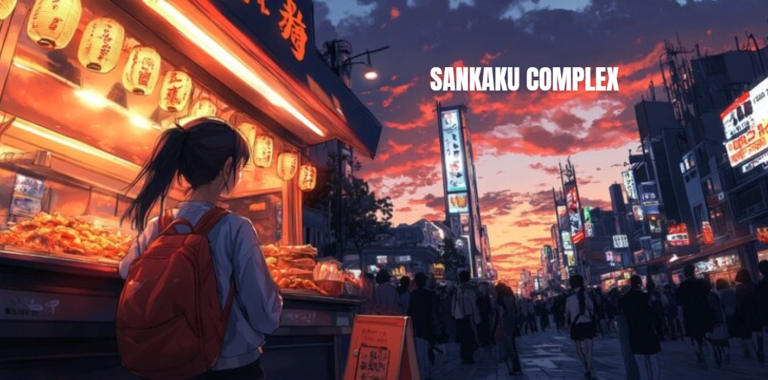Gamer Superstar Novel: A Comprehensive Guide to a Rising Genre in Literature
Introduction
In recent years, the intersection of gaming and literature has given rise to a fascinating new genre: the “gamer superstar novel.” This genre blends the high-stakes excitement of competitive gaming with the narrative depth of fiction, creating stories that resonate with readers who are both avid gamers and lovers of literature.
The “gamer superstar novel” is more than just a trend—it’s a reflection of the cultural significance of gaming in today’s world and the increasing desire for narratives that capture the essence of this digital phenomenon.
In this comprehensive guide, we will delve into the world of the “gamer superstar novel,” exploring its origins, key themes, popular examples, and its impact on both the gaming and literary communities. We’ll also discuss why this genre has gained traction in the United States and provide insights that go beyond existing sources, offering a deeper understanding of why these novels are becoming a staple in contemporary fiction.
What Is a Gamer Superstar Novel?
Defining the Genre
A “gamer superstar novel” typically revolves around the life of a protagonist who excels in the world of competitive gaming, often achieving fame and success akin to that of a superstar. These novels are characterized by their focus on gaming culture, the challenges of eSports, and the personal growth of characters within the digital arena.
While the genre can vary in its narrative approach—ranging from lighthearted adventures to intense psychological dramas—the common thread is the portrayal of gaming as a serious and influential aspect of the characters’ lives. The novels often explore the impact of gaming on relationships, identity, and society, making them relevant to both gamers and non-gamers alike.
Origins and Evolution
The “gamer superstar novel” genre has its roots in the broader trend of LitRPG (Literary Role-Playing Game) fiction, which emerged in the early 2000s. LitRPG novels typically blend elements of role-playing games with traditional fantasy or science fiction narratives, featuring protagonists who are immersed in game-like worlds. As the popularity of eSports and competitive gaming grew, a subgenre began to form, focusing specifically on the lives of gamers who rise to fame through their skills.
This genre gained momentum as gaming became more mainstream, particularly in the United States, where professional gamers started to receive recognition comparable to athletes and celebrities. As a result, the “gamer superstar novel” has become a natural evolution, capturing the zeitgeist of a generation that grew up with gaming as a central part of their identity.
Key Themes in Gamer Superstar Novels
The Rise to Fame
One of the central themes in many “gamer superstar novels” is the protagonist’s journey from obscurity to fame. These stories often begin with a talented but unknown gamer who, through dedication, skill, and sometimes a bit of luck, climbs the ranks of the competitive gaming world. This narrative arc mirrors the real-life experiences of many professional gamers, making it both relatable and aspirational for readers.
The rise to fame theme is not just about winning tournaments; it’s also about the personal growth and challenges that come with sudden success. These novels often explore the impact of fame on the protagonist’s personal life, relationships, and mental health, providing a nuanced portrayal of what it means to be a “superstar” in the digital age.
The Intersection of Virtual and Real Worlds
Another prominent theme is the blurring of lines between the virtual and real worlds. In a “gamer superstar novel,” the protagonist’s success in the gaming world often has significant real-world implications, affecting their social standing, financial situation, and even their sense of identity.
This theme resonates with readers who are familiar with the immersive nature of gaming, where achievements in a virtual space can feel as rewarding and impactful as those in real life. The novels explore how characters navigate these two worlds, balancing their online personas with their real-life obligations and relationships.
The Dark Side of Gaming
While many “gamer superstar novels” celebrate the excitement and potential of gaming, they also do not shy away from exploring its darker aspects. Themes such as addiction, toxicity within the gaming community, and the pressures of maintaining high performance are common. These novels often delve into the psychological toll that competitive gaming can take on individuals, highlighting the need for balance and self-care.
By addressing these issues, “gamer superstar novels” offer a more realistic portrayal of the gaming world, acknowledging that the path to success is not without its challenges and pitfalls.
Friendship and Rivalry
Friendship and rivalry are key elements in the “gamer superstar novel.” Protagonists often form close bonds with teammates or fellow gamers, creating a sense of camaraderie that is central to their success. At the same time, rivalries with other players or teams add tension and excitement to the narrative, driving the protagonist to push their limits and achieve greatness.
These relationships are often complex, with friendships sometimes turning into rivalries and vice versa. The novels explore how these dynamics shape the protagonist’s journey, adding emotional depth to the story.
Popular Examples of Gamer Superstar Novels
“Ready Player One” by Ernest Cline
While not strictly a “gamer superstar novel,” Ready Player One by Ernest Cline is often cited as a key influence on the genre. The novel takes place in a dystopian future where people escape their harsh realities by immersing themselves in a virtual world called the OASIS. The protagonist, Wade Watts, becomes a global superstar after embarking on a quest to find a hidden Easter egg within the game, leading to fame and fortune.
Ready Player One explores many of the themes central to the “gamer superstar novel,” including the blending of virtual and real worlds, the impact of gaming on identity, and the challenges of navigating fame.
“Warcross” by Marie Lu
Warcross by Marie Lu is a quintessential “gamer superstar novel.” The story follows Emika Chen, a young hacker and bounty hunter who accidentally glitches herself into a high-stakes virtual reality game called Warcross. Her unexpected entry into the game catches the attention of its creator, who hires her to uncover a security threat. As Emika becomes a key player in the world of Warcross, she navigates the pressures of fame, friendship, and danger.
Warcross is notable for its vivid depiction of the gaming world and its exploration of how technology can shape society. The novel’s blend of action, romance, and social commentary has made it a favorite among fans of the genre.
“Slay” by Brittney Morris
Slay by Brittney Morris offers a unique take on the “gamer superstar novel” by focusing on issues of race, identity, and representation in the gaming community. The novel centers around Kiera Johnson, a Black teenager who creates a virtual reality game called SLAY as a safe space for Black gamers. When the game becomes the subject of controversy after a player’s death, Kiera must navigate the pressures of being a game developer and the challenges of maintaining her secret identity.
Slay explores the power of gaming as a tool for empowerment and cultural expression, adding a layer of social commentary that resonates with readers in the United States and beyond.
“Erebos” by Ursula Poznanski
Erebos by Ursula Poznanski is a thriller that delves into the darker side of gaming. The novel follows Nick Dunmore, a teenager who becomes addicted to a mysterious and highly immersive game called Erebos. As Nick rises through the ranks of the game, he discovers that it has a sinister agenda, blurring the lines between virtual challenges and real-world consequences.
Erebos is a compelling example of how “gamer superstar novels” can explore the psychological impact of gaming, offering a cautionary tale about the dangers of losing oneself in a virtual world.
The Impact of Gamer Superstar Novels on Culture
Bridging Gaming and Literature
One of the most significant impacts of “gamer superstar novels” is their ability to bridge the gap between gaming and literature. These novels appeal to a wide audience, including gamers who may not traditionally engage with fiction and readers who are curious about gaming culture. By incorporating gaming elements into their narratives, these novels make literature more accessible and relevant to a digital-savvy generation.
Influencing the Perception of Gaming
“Gamer superstar novels” also play a role in shaping public perceptions of gaming. By portraying gamers as complex, multidimensional characters, these novels challenge stereotypes of gamers as socially isolated or unproductive. Instead, they highlight the skills, dedication, and creativity involved in gaming, presenting it as a legitimate and valuable pursuit.
Contributing to the eSports Narrative
As eSports continues to grow in popularity, “gamer superstar novels” contribute to the broader narrative of competitive gaming as a serious and respected profession. These novels often depict the challenges and triumphs of professional gamers, offering readers a glimpse into the world of eSports and the high stakes involved. In doing so, they help legitimize gaming as a career and inspire the next generation of gamers.
Fostering Diversity and Inclusion
Many “gamer superstar novels” address issues of diversity and inclusion within the gaming community. By featuring protagonists from diverse backgrounds and exploring themes such as representation and identity, these novels contribute to a more inclusive narrative within both the gaming and literary worlds. This focus on diversity helps to broaden the appeal of the genre and ensures that it reflects the experiences of a wide range of readers.
How to Write a Gamer Superstar Novel
1. Start with a Strong Concept
The foundation of any successful “gamer superstar novel” is a strong concept that resonates with readers. Consider what makes your protagonist unique and how their journey in the gaming world will capture the reader’s imagination. Whether it’s the story of an underdog rising to fame or a deep dive into the psychological aspects of competitive gaming, your concept should be compelling and relevant.
2. Build a Believable Gaming World
To create an immersive experience, it’s essential to build a believable gaming world that feels authentic to both gamers and non-gamers. This includes developing detailed game mechanics, rules, and settings that mirror the complexity of real-world games. Additionally, consider how the virtual world intersects with the protagonist’s real life, adding depth to the narrative.
3. Develop Multi-Dimensional Characters
Your characters should be multi-dimensional, with strengths, flaws, and personal challenges that make them relatable. In a “gamer superstar novel,” it’s important to explore how the characters’ experiences in the gaming world influence their real-world relationships, identity, and personal growth.
4. Incorporate Themes of Growth and Challenge
A key element of the “gamer superstar novel” is the protagonist’s journey of growth and self-discovery. This journey should be marked by challenges, both in the gaming world and in real life. Whether it’s overcoming rivals, dealing with the pressures of fame, or confronting personal demons, these challenges add tension and keep readers engaged.
5. Balance Action with Emotional Depth
While action and excitement are central to the genre, it’s equally important to balance these elements with emotional depth. Explore the psychological and emotional aspects of gaming, such as the impact of competition on mental health, the importance of friendship and teamwork, and the quest for personal fulfillment.
6. Address Relevant Social Issues
Consider incorporating relevant social issues into your novel, such as the representation of marginalized groups in gaming, the impact of technology on society, or the ethics of gaming. Addressing these issues can add layers of meaning to your story and make it more relevant to contemporary readers.
FAQs about Gamer Superstar Novels
1. What is a gamer superstar novel?
A “gamer superstar novel” is a genre of fiction that revolves around the life of a protagonist who excels in the world of competitive gaming, often achieving fame and success. These novels explore themes such as the rise to fame, the intersection of virtual and real worlds, and the challenges of being a professional gamer.
2. Why are gamer superstar novels popular?
Gamer superstar novels are popular because they resonate with a generation that has grown up with gaming as a central part of their lives. These novels offer a blend of action, drama, and personal growth that appeals to both gamers and readers who are interested in the cultural impact of gaming.
3. What are some popular examples of gamer superstar novels?
Some popular examples of gamer superstar novels include Warcross by Marie Lu, Ready Player One by Ernest Cline, Slay by Brittney Morris, and Erebos by Ursula Poznanski.
4. Can non-gamers enjoy gamer superstar novels?
Yes, non-gamers can enjoy gamer superstar novels because they often explore universal themes such as friendship, rivalry, personal growth, and the pursuit of success. The gaming element adds a unique backdrop to these stories but does not require in-depth gaming knowledge to be appreciated.
5. How do gamer superstar novels differ from LitRPG?
While both genres involve gaming, LitRPG novels typically focus on protagonists who are immersed in game-like worlds, often with RPG elements such as leveling up and stats. Gamer superstar novels, on the other hand, focus on the real-world experiences of competitive gamers and their journey to fame.
6. What themes are common in gamer superstar novels?
Common themes in gamer superstar novels include the rise to fame, the blending of virtual and real worlds, the psychological impact of gaming, friendship and rivalry, and the challenges of maintaining a balanced life in the face of gaming success.
Conclusion
The “gamer superstar novel” is a dynamic and rapidly evolving genre that reflects the growing cultural significance of gaming. By blending the excitement of competitive gaming with the narrative depth of fiction, these novels offer readers a unique and engaging experience. Whether you’re a gamer looking for stories that resonate with your experiences or a reader interested in exploring the impact of gaming on society, the “gamer superstar novel” genre has something to offer.
As the genre continues to grow, it will undoubtedly produce even more stories that capture the imagination and speak to the challenges and triumphs of the digital age. For aspiring writers, the “gamer superstar novel” presents an opportunity to explore new storytelling avenues and connect with a diverse and passionate audience.






